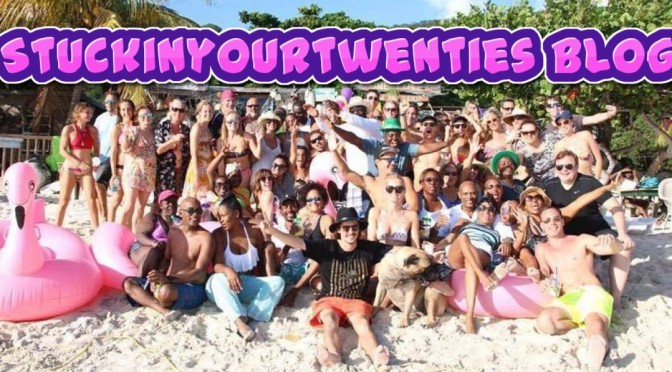
No tengo dinero. Soy pobre, viajo con un presupuesto limitado.
I do not have money. I am poor, I travel with a limited budget.
Budget travelling means different things to different people, and especially different travellers.
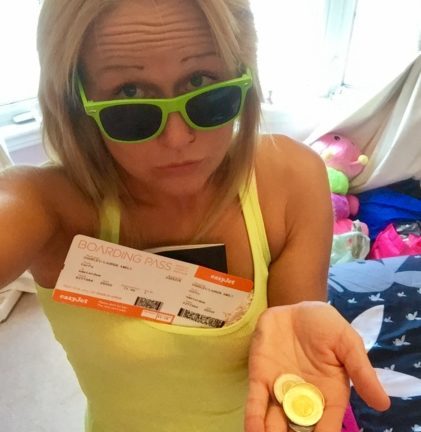
On the plane to Cartagena when I chose to take off to Colombia, I witnessed what was clearly a display of entitled Torontonians in their early to mid-twenties, spending Daddy’s Visa on bottle after bottle of Champagne on an Air Transat flight, which left at 10 in the morning.

These are kids who go for a week to party non-stop with no budget, get ripped off by the locals, and live like an episode of Jersey Shore- because in a couple of years, they’ll be making their kids pasta and drinking wine, never having experienced anything which doesn’t require spending money.
Of course, you have your sophisticated adult couples who travel with no budget and like to try out $$$$-$$$$$ restaurants. But they’re not fun to talk about.
Then there’s retirees with literally nothing to do but spend their savings on a month long Air BnB rental, and groups of old hags who come together for a collective mid-life crisis.

Of course there are families, carrying budgets from “Well we are on vacation at Disney Land, I’ll buy my son a lightsaber and the Super Waffles” to “What’s the absolute cheapest I can spend I addition to the flight and hotel package?”.
Then you got your ‘Budget Travellers’ at hostels who don’t mind staying in shared, semi-shitty and noisy accommodation as long as they can spend what it would cost to to split a hotel on cheap cerveza and powdery sawdust they purchased thinking it was drugs.
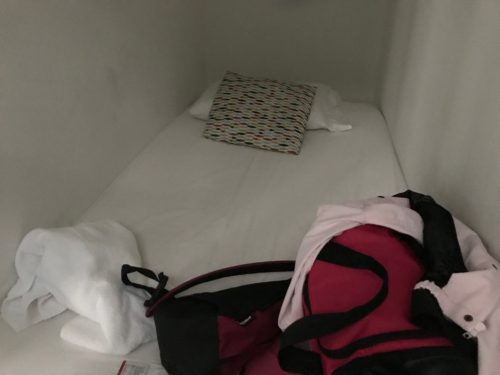
There’s not many, like me, who truly are the stingiest of the stinge. I can’t justify spending money on a vacation alone if I know I could be working there to earn my keep, like I did at The Pink Palace in Corfu, Greece. I’m a minimal spender even when I travel for a short vacation. Idk I guess I’m just not in the tax bracket to splurge.
My kind of travellers are minimal spenders; we like to work in hostels rather than be guests, learn the place and experience it right, and make adventures along the way.

At the time I wrote this initially, my thoughts were I can’t spend money going out, having fun, knowing I have a guy I will hopefully, eventually go on vacation and share an experience with.
As a blonde Caucasian who speaks English, I’m the prime target to be hustled by every single local person who relies on the tourism of their community to sell their chintzy souvenirs, overpriced tours, and get you in for a meal and Pina Colada at their restaurant. Hey, we all need to make money, but what about my grungy outfit and drawstring backpack screams to you ‘affluent tourist’?
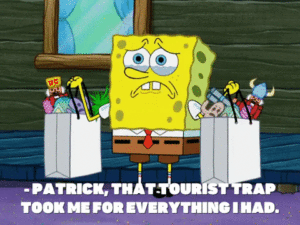
But saying “No”, “No thank you”, “No, gracias” just isn’t enough.
“No tengo dinero. Soy pobre, viajo con un presupuesto limitado.” – I don’t have money. I’m a poor, I travel with a limited budget.
If I can learn this sentence when I visit Spanish-speaking countries, maybe there’s a chance I will stop getting chased by people with coolers full of Ice Cream Drumsticks, pictures of excursions in the jungle, and food I wouldn’t consume, even for free.
I later learned during a trip to Cartagena to visit the hospital during my time living in the San Bernardo Islands, another great phrase:
“NO ACOSAR”. It means NO harass, annoy, hustle, whatever.
I learned it from a man who quietly sat beside his souvenirs on the street and didn’t call me over, or even approach me other than smile when he saw me at his table. That’s one thing I noticed in stores in Cartagena, that the shop assistant would follow you around and stare at you while you check out every single item.
Most of the time I’d say “No Español”, even though I could speak enough for a simple conversation, in hopes they’d leave me alone. But they still followed me around like a fly on a patacon relleno (stuffed fried plantain).
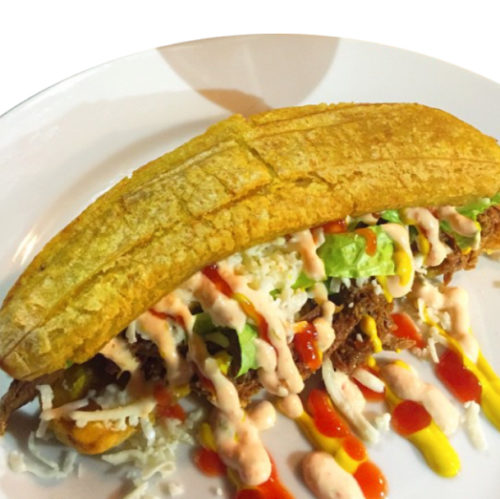
I said to the guy “Yo comprar aqui porque tu no hablar conmigo asi, Hola! hola! Mi no gusta.”
Basic translation “I buy here because you don’t talk with me like this, Hello! hello! I don’t like (it).”
He knew exactly what I meant and chuckled. “Si… No acosar”.
Of course when I heard this first I thought he said “acostar” like the English word ‘accost’, so I went around saying “No acostar por favor” for the rest of my visit in Cartagena.
I later Google Translated that word, and it means lay down. Still, the shop people knew what I meant when I said “acostar” and my face clearly said f* off. But that explains why they laughed at me.
So if you’re a Broke A$$ Puta like me when you travel to Spanish speaking countries and are not fortunate enough ball hard with your parents moneym or a big salary which only allows two weeks vacation a year, remember the magic phrase:
“No tengo dinero. Soy pobre, viajo con un presupuesto limitado.” Or simply, “NO ASOCAR”.
Love from Lala.
Follow me on Insta: laurenamelia91
Follow me on Facebook: Stuckinyourtwenties Blog



